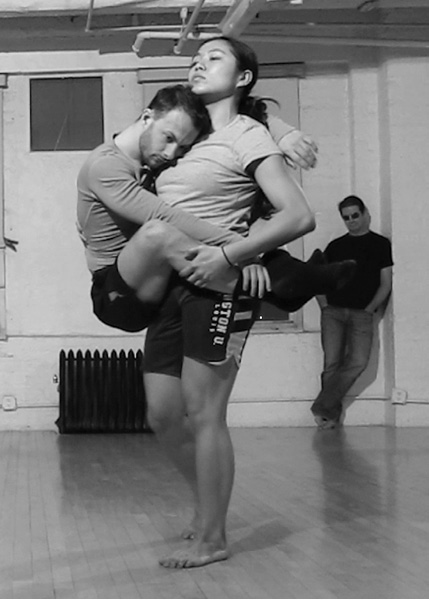
NEVADA
first performed on February 3, 2013
Dixon Place, New York, NY
performed once in 2013
K. M. MUSTATEA
Zachary Denison, Steven Ogg, Tina Wang, Margot White
New York, NY
092529630k092529630@092529630m092529630u092529630s092529630t092529630a092529630t092529630e092529630a092529630.092529630c092529630o092529630m
mustatea.com
NEVADA
K. M. MUSTATEA
“Nevada” is about technology, tenderness, violence and heartbreak. The performance is made up of three monologues given by three members of a family recently transplanted to the bleak terrain of the Nevada desert. Two of the monologues are delivered in language, while a third monologue is pure movement. The performance is meant to examine the intricate syntax of movement and of spoken language, comparing the patterns and tics of each mode of expression and finding common points of resonance and tension.
Bianca’s perspective is delivered in verse, which makes use of the heightened musicality of language to enhance the brimming sense of foreboding she feels about bringing her son to Nevada. Knowing that her profoundly disabled teenage son has violent impulses that he cannot control, she laments feeling trapped in the brittle set of circumstances that will very likely end in tragedy. In direct contrast, her estranged husband Jake is a businessman for whom Nevada is an opportunity. He projects onto the landscape his raw vulgarity and ambition, his intense fascination with the jet propulsion rockets he is building and his insatiable need for recognition. His crass dick jokes and technical jargon are also delivered in verse, this time creating a disquieting tension between the musicality of the words and the unbeautiful thoughts expressed.
Between these two figures, positioned like bookends to the performance, we see their teenage son Leo. He does not speak and his disability is not named, but the pattern of his repetitive movements is distinctive and expresses a completely different mode of interacting with the world. A grown man-child cradled in the arms of his nurse, his ‘language’ veers from compulsive, awkward gestures to moments of playfulness and occasional grace. The choreography here is part improvisation and part tightly stylized rhythms.
In this piece, Nevada is an idea as much as a place. The desert acts as a psychic space on which each person projects dreams, fears, ambitions and an endless longing for connection and transcendence. In creating this portrait of a doomed family, I was looking for a larger scope to express the tensions inherent in text and the consequences of words in the greater world. Ultimately, it is Leo who gives true voice to the tenderness and violence inherent in the spoken words of his parents.